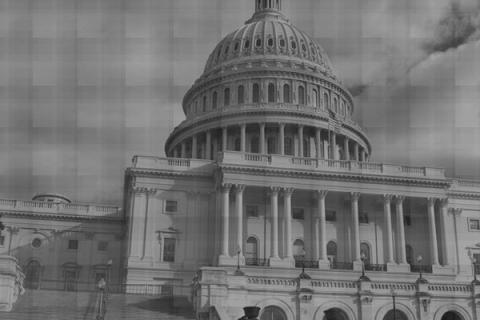A Mississippi federal judge this afternoon ruled in favor of keeping the last Mississippi abortion clinic open by blocking the state's TRAP bill. This means the Governor's bill failed, for now, in outlawing abortion in the state without overturning Roe v. Wade.
The judge previously blocked the law with a temporary restraining order on July 1. The Associated Press reports the judge did not initially say how long today's extended order will last.
Mississippi Gov. Phil Bryant (R) signed into law a Targeted Regulation Abortion Provider (TRAP) bill in April of this year. The law literally means what it stands for: to specifically target and shut down Mississippi’s last abortion clinic. The bill requires that the clinic must have “certified OB/GYNs, and that those service providers must have admitted privileges to a hospital.”
The second clause in the law is the most important factor in aiming to close the remaining abortion clinic, Jackson Women’s Health Organization.
Stanley Henshaw, a medical consultant and abortion researcher told the Bloomberg Report in regard to the law and today’s court hearing: “to grant privileges, many hospitals require physicians to live within a short distance of the hospital and to admit a minimum number of patients a year, often ten or more.”
Admitted privileges are extremely difficult to acquire, and although clinicians of Mississippi’s last abortion clinic have applied for admitted privileges, they have received no response. Secondly, doctors at Jackson Women’s Health Organization, the last abortion provider in Mississippi, “travel in from other states, and only one of its doctors is authorized to practice at a nearby hospital.” Legislators purposefully manipulated law for a specific result: the outlaw of abortion practices within the state.
The Mississippi federal judge already ruled on the bill after its initial signing, citing that, “…any enforcement of the Act is enjoined until July 11, 2012, when a hearing will be held to determine, after further briefing by the parties, whether a preliminary injunction should issue.”
Thus, without today’s federal suspension of the governor’s bill, the law would go into effect immediately, the abortion clinic will be shut down, and if the abortion clinic refuses to adhere to the law, clinicians and will face arrest.
Upon signing the bill back in April, Gov. Phil Bryant stated, “I think it’s historic that today you see the first step in a movement we campaigned, to try to end abortion in Mississippi."
In fact, Bryant considers his goal of outlawing abortion in the state as a campaign promise.
The Lieutenant Governor Tate Reeves also made a public statement in regard to the abortion restriction law:
“It has been seven years since we have got good pro-life legislation passed out of the Mississippi legislature. That is a bill that gives us a great opportunity to accomplish what our goal needs to be. Our goal needs to be to end all abortions in Mississippi. I believe the admitting privileges bill gives us the best chance to do that.”
Despite these statements insinuating the use of the law is to end abortion in the state, today, the Mississippi Governor insists that the TRAP bill is intended to promote women’s safety and health first and foremost.
W. Martin Wiseman, director of the Stennis Institute of Government at Mississippi State University told CNN:
“All of that [TRAP bill] is wrapped in that cloak of conservative religion.”“When you are in this state, you cannot separate an issue from religion. …The normal rationale used in other states doesn’t fly here. You’ll find very few legislators – regardless of whether they are white, black, Democrat or Republican – who will say ‘I’m pro-abortion.”
Four other states also face similar abortion circumstances as Mississippi: Wyoming, North Dakota, South Dakota, and Arkansas. This Mississippi ruling will most likely serve as a precedent for the other states’ courts.

